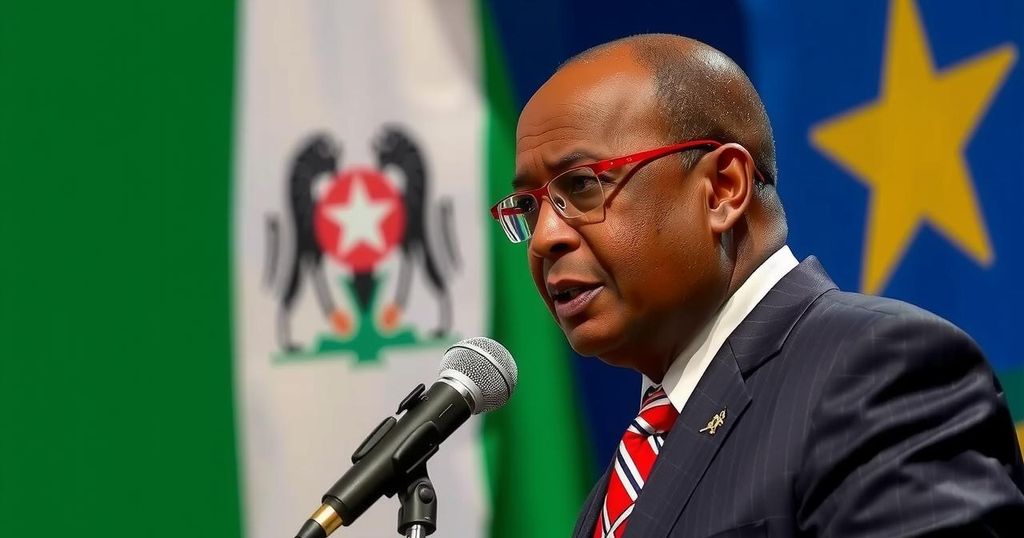Indefinite Postponement of Guinea Bissau Elections Deepens Political Crisis

Guinea Bissau’s President Umaro Sissoco Embalo has indefinitely postponed legislative elections scheduled for November 24, further prolonging the nation’s political instability. The decision follows warnings of logistical and financial issues, with no new election date set yet. Compounding this uncertainty is the tense relationship between the president and the dominant PAIGC party, amid concerns over funding and governance in one of the world’s poorest countries.
On Monday, Guinea Bissau’s President Umaro Sissoco Embalo announced the indefinite postponement of legislative elections that were originally scheduled for November 24. This decision further extends the political uncertainty that has engulfed the country since Embalo dissolved parliament in December 2023 following an attempted coup, marked by violent turmoil shortly before. The postponement came as no surprise following the warning issued by Aristides Ocante da Silva, the minister for territorial administration, who cited logistical challenges and insufficient funds as barriers to conducting the elections as planned. Meanwhile, Embalo’s official declaration included the cancellation of the prior decree setting the vote date, yet a new date for the elections has yet to be determined, pending a future decree. Exacerbating the uncertainty regarding the legislative elections is a parallel ambiguity surrounding the presidential election to succeed Embalo. Tensions have arisen, particularly as the African Party for the Independence of Guinea and Cape Verde (PAIGC), which holds a parliamentary majority since the June 2023 elections, has led to a delicate cohabitation dynamic between the president and the PAIGC leadership. Guinea Bissau, despite making strides toward constitutional governance over the past decade, remains mired in political instability, compounded by historical issues of poverty and corruption.
Guinea Bissau, a small West African nation, has faced a turbulent political landscape since its independence from Portugal. It has been plagued by numerous coups and ongoing corruption, resulting in challenges for effective governance. The current political climate was heightened after President Umaro Sissoco Embalo dissolved parliament in December 2023 due to armed clashes viewed as an attempted coup. With the PAIGC party holding a majority since the last election, questions about political cohabitation and the timeline for upcoming elections have become pressing issues, impacting the overall stability of the nation.
In summary, the indefinite postponement of the legislative elections in Guinea Bissau underscores the nation’s ongoing political crisis and uncertainty. With multiple factors, including logistical hurdles and financial constraints, contributing to the decision, the path forward for both legislative and presidential elections remains unclear. This situation highlights the fragility of governance in Guinea Bissau, particularly under the scrutiny of historical challenges such as poverty, corruption, and political strife.
Original Source: punchng.com







